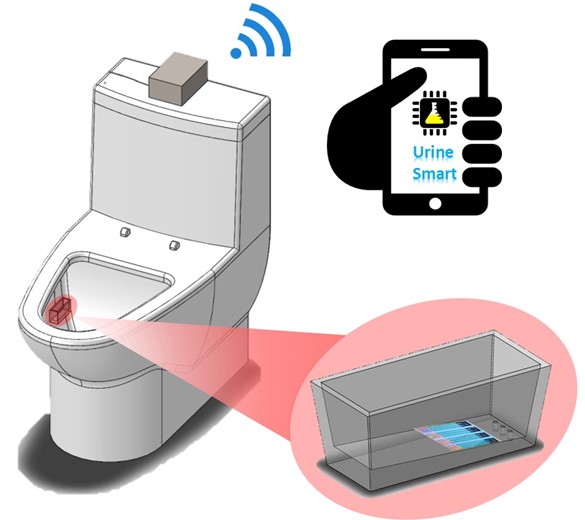They say that building a successful business takes plenty of “blood, sweat, and tears,” and that sentiment couldn’t be truer for StreamSense Medical CEO Cheng Yang. But, given the nature of his business, he’d probably tack on “urine” to the end of that phrase. Old adages aside, these substances fall under the category of bodily fluids containing important “biomarkers,” which help medical professionals see and monitor potential health issues – and Yang, a recent Chemistry PhD graduate from UVA, sees the potential for big business.
StreamSense Medical’s first product-in-development, UrineSmart, will soon position his startup squarely in the company of some savvy heavy-hitters who are also exploring the biomarker space. “Google X is working on a product to help [monitor glucose levels] using tears, Harvard is working on a sensor to detect biomarkers via sweat, and we are the urine guys,” Cheng says with a laugh. For those of us less familiar with cutting-edge science and medical developments (myself very much included), UrineSmart will be an at-home urine test device that uses electrochemistry technology developed by Yang and colleagues Long Di (CTO) and Longze Chen (CIO) as a pre-diagnostic tool measuring important biomarkers and bio-indicators. The device will sit directly in a user’s toilet and will take account of humidity, temperature, ph, and other factors to help them monitor important measurements such as present levels of uric acid, a substance closely related to kidney stones.
Recently, Yang and his team have begun to envision many potential markets for this product – from nursing homes and hospitals to insurance companies and even health-conscious individuals. As participants in the new i.LabX program this past school year, they gained a valuable new business perspective from a Darden MBA student who worked closely with the team for several months. Yang credits this program – which brings graduate students working on high-impact technology together with graduate business students in order to collaborate on product-market alignment – with opening countless doors for himself and his company, resources that were always within the same school community but, prior to i.LabX, had felt surprisingly out of reach. According to Yang, “even though we’re all UVA, we live in different worlds,” but he credits the i.LabX program with successfully bridging that gap, as well as with opening his eyes to important business considerations as they continue development.
Though market possibilities abound, for Yang, it is far more personal than that. The idea originally came to him after witnessing his grandmother suffer from diabetes and kidney diseases for more than 15 years. Regular urine collection and analysis were a critical part of her treatment plan, but she struggled with very limited mobility, and Yang recalls the strife she and other family members endured trying to figure out a system to help her stay on top of it. Last summer, his grandmother passed away, but the memories of her medical struggles and care discomfort have fueled Yang to continue seeking ways to help folks like her.
Yang comes from an analytical, science-focused background, but his very human passion is evident when he speaks about his drive to develop products and technologies that can improve others’ quality of life. He still remembers the moment when he officially decided to pursue this idea as a career path, a departure from the typical trajectory of his fellow PhD students. One of the reasons he chose UVA for graduate school was Charlottesville’s surrounding lush nature, which allows him to "get away from the noise and think about what's in my heart." An avid hiker, Yang was walking the familiar path at Humpback Rock when he decided to turn this "dream idea" into a reality – "I thought - why not just do it, why not you?"
These days, although UVA still provides many opportunities for solitary soul-searching, it feels much more interconnected than it once did. The Darden team helped facilitate a crucial connection with a local nursing home, where StreamSense will be giving out 10-15 trial versions of UrineSmart in the near future. Yang believes deeply in the product's potential, but he avoids getting caught up in traditional business metrics of success. “When people talk with me about my idea, I try to focus on the [impact of the] technology. Even if I were to fail halfway to commercialization, I will still have wanted to get it that far, as [an act of] charity to the whole society.”

